India-Pakistan tensions soar
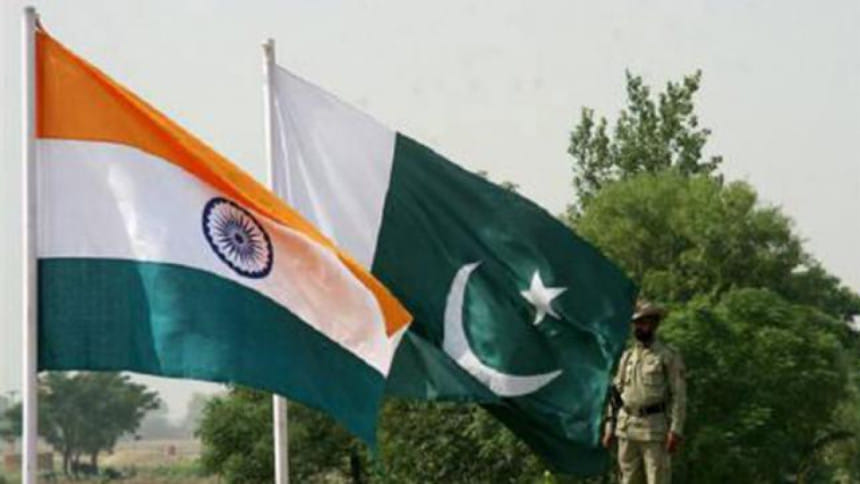
India and Pakistan exchanged an escalating series of tit-for-tat diplomatic measures yesterday after New Delhi blamed its arch-rival for backing a deadly shooting attack in contested Kashmir.
The tit-for-tat announcements took relations between the nuclear-armed neighbours, who have fought three wars, to the lowest level in years.
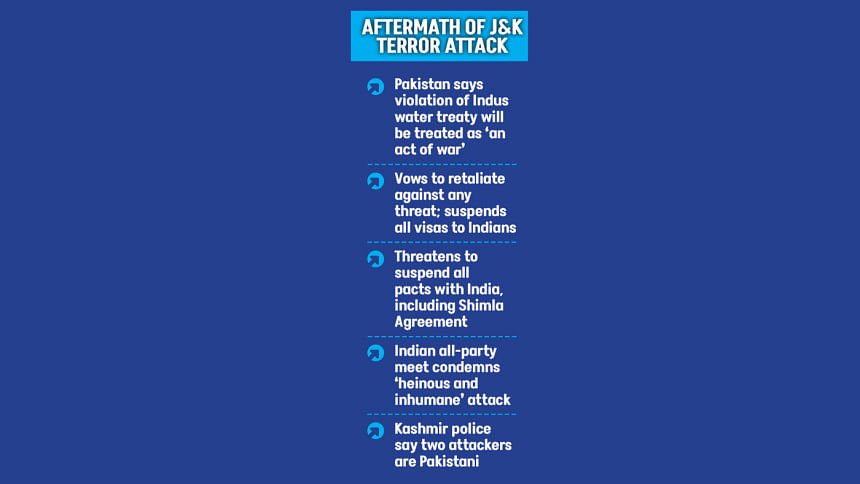
The latest diplomatic crisis was triggered by the killing of 26 men at a popular tourist destination in Indian Kashmir on Tuesday, in the worst attack on civilians in India since the 2008 Mumbai shootings. All 26 killed were Indian nationals, except one from Nepal.
New Delhi said there were cross-border elements to the attack and downgraded ties with Pakistan on Wednesday, suspending a 1960 treaty on sharing waters of the Indus River and closing the only land crossing between the neighbours.
While the measures are largely symbolic, some fear New Delhi's diplomatic moves may just be an opening salvo -- with the potential risk of military action between the nuclear-armed neighbours.
Indian police published notices naming three suspects and saying two were Pakistanis, but New Delhi has not offered any proof of the links or shared any more details.
Police have offered a two-million-rupee ($23,500) bounty for information leading to each man's arrest.
Yesterday, Pakistan said it was closing its airspace to Indian-owned or operated airlines, suspending all trade, including through third countries and halting special South Asian visas issued to Indian nationals.
Islamabad will also exercise the right to hold all bilateral accords with India, including the 1972 Simla Agreement, in abeyance until New Delhi desists from "fomenting terrorism inside Pakistan", Pakistan's Prime Minister's Office said in a statement.
The Simla Agreement lays down principles meant to govern bilateral relations, including respect for a ceasefire line in Kashmir.
The announcement from the Pakistan Prime Minister's Office followed a meeting of the National Security Committee.
There was no immediate response from New Delhi to Pakistan's announcement.
Muslim-majority Kashmir has been at the heart of the animosity between India and Pakistan, with both claiming it in full and ruling it in part. It has been the cause of two of their three wars and also witnessed a bloody insurgency against Indian rule.
Islamabad also said it "vehemently rejects" India's suspension of the Indus Waters Treaty and said that any attempt to stop or divert water belonging to Pakistan would be considered an "act of war and responded with full force across the complete spectrum of national power."
The water treaty, mediated by the World Bank, split the Indus River and its tributaries between the neighbours and regulated the sharing of water. Pakistan is heavily dependent on water flowing downstream from this river system from India for its hydropower and irrigation needs.
The suspension of the accord is not expected to have an immediate impact on the flow of water to Pakistan, as India does not have enough storage capacity. But India's move could bring uncertainty for Pakistan's agricultural system. New Delhi will also not be obliged to release a minimum amount of water during the lean season.
Pakistan's response came hours after Indian Prime Minister Narendra Modi vowed to pursue, track and punish the militants who killed the tourists.
It also came after the Indian foreign ministry announced the suspension of all visa services to Pakistanis and revoked visas that had already been issued.
"We will pursue them to the ends of the earth," Modi said at a rally in Bihar, without referring to the attackers' identities or naming Pakistan.
"They have made the mistake of attacking the soul of India. I want to say clearly that those who have planned and carried out this attack will be punished beyond their imagination," Modi said to cheers from the crowd.
The Ministry of External Affairs also strongly advised Indian nationals to avoid travelling to Pakistan, and those Indian nationals currently in Pakistan are also advised to return to India at the earliest.
It also said medical visas issued to Pakistani nationals will be valid only till 29th April.
Meanwhile, an all-party meeting with opposition parties yesterday adopted a resolution unequivocally condemning the "heinous and inhumane" attack on innocent civilians in Pahalgam, said the meeting's convener, Jammu and Kashmir Chief Minister Omar Abdullah.
India also briefed envoys of the US, the UK, France, China, Russia, Germany and several other countries on the Pahalgam terror attack and its link to cross-border terrorism, reports our New Delhi correspondent.
Foreign Secretary Vikram Misri apprised the diplomats about various aspects of the attack on innocent civilians.
Diplomats of Oman, the United Arab Emirates, Qatar, Norway, Italy, Indonesia and Malaysia were also part of the briefing.
Meanwhile, India's Army Chief Gen Upendra Dwivedi is travelling to Srinagar today to carry out a comprehensive review of the security situation in Jammu and Kashmir. It is not immediately clear whether the army chief will travel to Pahalgam.
Apart from expelling Pakistani diplomats, India on Wednesday summoned Saad Ahmad Warraich, the charge d'affaires at the Pakistan embassy.
In New Delhi, dozens of protesters gathered outside the Pakistani embassy in the diplomatic enclave, shouting slogans and pushing against police barricades.
A film that starred Pakistani actor Fawad Khan in the lead with Bollywood actor Vaani Kapoor will now not be released in India, local media reported, citing federal information ministry sources.
Diplomatic relations between the two countries were weak even before the latest measures were announced, as Pakistan had expelled India's envoy and not posted its own ambassador in New Delhi after India revoked the semi-autonomous status of Kashmir in 2019.
India has often accused Islamic Pakistan of involvement in the insurgency in Kashmir, but Islamabad says it only offers diplomatic and moral support to a demand for self-determination.
Tens of thousands of people have been killed in Kashmir since the uprising began in 1989, but it has tapered off in recent years, and tourism has surged in the region.

 For all latest news, follow The Daily Star's Google News channel.
For all latest news, follow The Daily Star's Google News channel. 






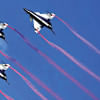
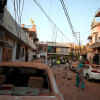

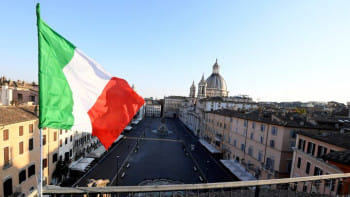
Comments